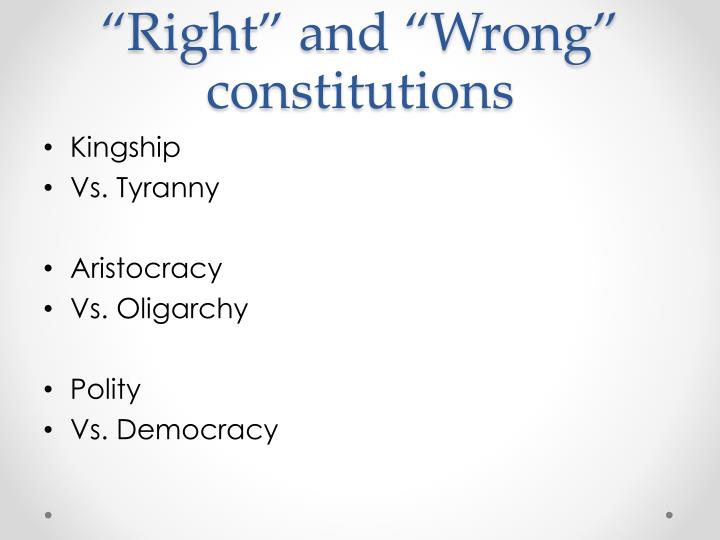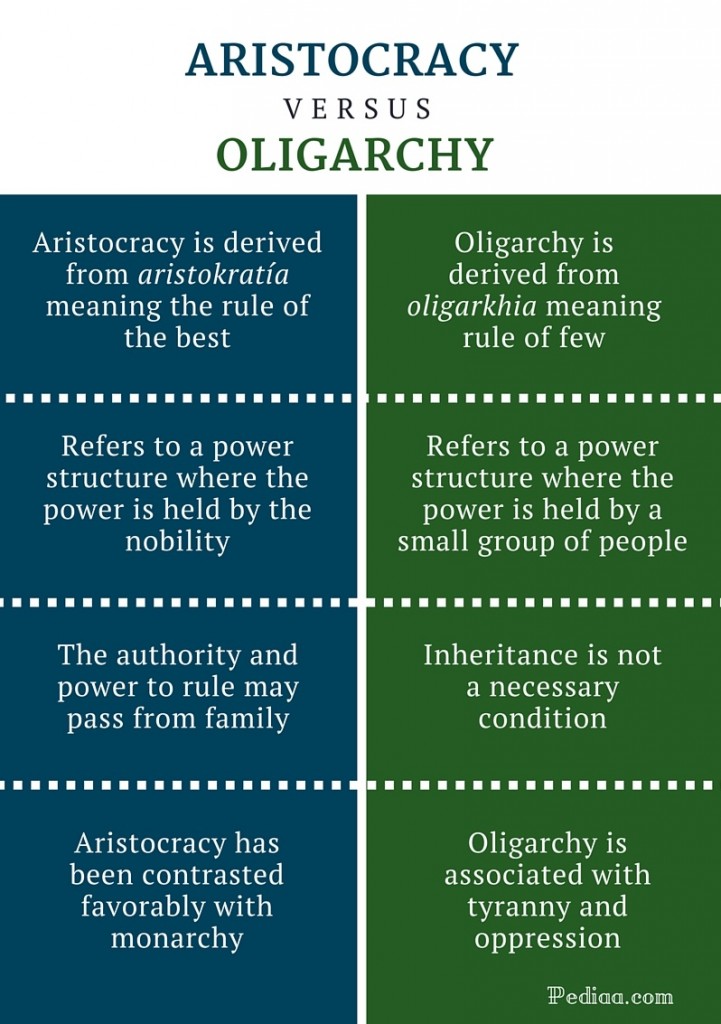It’s a scenario many of us have envisioned – a world where the wealthy elite wield absolute power, shaping laws and policies to their advantage. But are we talking about a plutocracy or an oligarchy? These terms, often used interchangeably, actually denote distinct forms of governance, each with its own characteristics and implications. Understanding the difference becomes crucial in navigating today’s political landscape, where the influence of wealth is increasingly recognized.

Image: dpmain.weebly.com
I first encountered this distinction while reading a political analysis article, fascinated by the subtle nuances these terms offered in explaining the complex dynamics of wealth and power. As I delved deeper, I realized the importance of defining these terms clearly, not only for a deeper understanding of political systems but also for analyzing real-world scenarios and their implications on our lives. Let’s dive into the specifics of these two power structures.
Defining Plutocracy: Rule of the Wealthy
At its core, a plutocracy refers to a form of government where the wealthy class holds absolute power, with their influence shaping political decisions and policies. This influence can manifest in various ways, from direct control through political donations and lobbying to indirect mechanisms like the control of media outlets and public opinion. The term itself is derived from the Greek words “ploutos” meaning wealth and “kratos” meaning power.
Historically, plutocracies haven’t always been explicitly named. Ancient civilizations, especially those heavily reliant on trade, often saw the rise of powerful merchants whose wealth gave them political influence. For instance, in the Roman Republic, wealthy families like the Scipios wielded significant political power, influencing the senate and military campaigns.
Understanding Oligarchy: A Rule by Few
An oligarchy, in contrast, is a form of government where power rests in the hands of a small, often self-serving group of individuals. While the elite in an oligarchy might not necessarily be wealthy, their position derives from various factors: political connections, military prowess, or even religious standing. The term stems from Greek words “oligos” (few) and “arche” (rule) indicating the concentration of power in the hands of a select group.
Throughout history, we find numerous examples of oligarchies. Ancient Sparta, for instance, was governed by a council of elders, known as the Gerousia, who controlled policy and military strategy, mirroring the structure of a typical oligarchy. The modern-day United Arab Emirates, while not a typical oligarchy in its governmental structure, exhibits certain characteristics of one, with power primarily concentrated within the ruling families.
Key Differences: A Comparative Analysis

Image: pediaa.com
Who Holds the Power?
A key distinction between plutocracy and oligarchy lies in the source of power. In a plutocracy, wealth is the primary driver of power. Those with the most money hold the greatest political influence. In an oligarchy, power is held by a small group of individuals, and their wealth may be a factor, but it’s not the sole determinant. Other factors, such as military strength, political connections, or social status, are equally important.
Mechanisms of Influence:
A plutocracy often operates through a system of direct and indirect influence. Direct influence comes from political donations and lobbying efforts. The wealthy can fund political campaigns, influence legislation, and even dictate policy priorities. Indirect influence arises through media control, where the wealthy can manipulate public opinion and shape narratives to their advantage.
An oligarchy, on the other hand, relies on a combination of political maneuvering, strategic alliances, and control of crucial resources. The powerful few within an oligarchy use their position to gain access to resources and influence, often operating in a closed loop of patronage and power.
Impact on Society:
Both plutocracy and oligarchy can result in significant social inequalities. A plutocracy can create a system where the wealthy elite accumulate even greater wealth, leaving the rest of society struggling. This can lead to economic disparities and limited opportunities for social mobility.
An oligarchy can create a system where a small group of individuals has an outsized impact on society, often at the expense of the majority. This can manifest in a lack of accountability, corruption, and a suppression of dissenting voices.
Navigating the Current Landscape: Trends and Insights
In the modern world, the lines between plutocracy and oligarchy blur, creating a complex and interconnected web of power and influence. The rise of global capitalism has led to the concentration of wealth in the hands of a small elite, creating a systemic condition conducive to both plutocratic and oligarchic tendencies.
This is evident in the increasing influence of wealthy individuals and corporations on political decision-making. Large corporations use their resources for lobbying, contribute heavily to political campaigns, and often wield significant influence over media narratives. This presents a scenario where the interests of the wealthy are often prioritized over the needs of the majority of the population.
Tips and Expert Advice for Engaging with Power Structures
To navigate this complex landscape, it’s crucial to be informed about the mechanisms of power and influence. As citizens, we can:
- Educate Ourselves: Understanding the concepts of plutocracy and oligarchy, as well as the intricate ways they manifest in our society, is the first step towards informed civic engagement.
- Support Transparency and Accountability: Demanding greater transparency in government and corporate dealings is essential for holding power to account.
- Engage in Political Participation: Voting, running for office, and participating in campaigns are crucial for ensuring representative democracy and challenging the influence of unelected power structures.
- Support Grassroots Organizations and Movements: Joining and supporting organizations dedicated to promoting social justice, economic equality, and political reform can be a powerful tool for change.
- Spread Awareness: Sharing information and discussing these issues with friends, family, and community members help to raise awareness and encourage collective action.
These actions, while seemingly small, are crucial in countering the undue influence of wealthy individuals and groups. Informed engagement with political systems is vital for ensuring that power remains accountable to the people, rather than being concentrated in the hands of the few.
FAQ: Clarifying the Concepts
Q: Is the U.S. a plutocracy?
The question of whether the U.S. is a plutocracy is a complex one. While the nation is founded on democratic principles, the influence of wealthy individuals and corporations in politics is undeniable. However, it’s important to emphasize that the U.S. has a robust system of checks and balances, and its citizens enjoy freedom of speech, assembly, and the press. The extent to which these freedoms are effectively utilized and the degree of influence the wealthy exert remain subject to ongoing debate and scrutiny.
Q: How can I tell if my country is being ruled by an oligarchy?
Identifying an oligarchy requires looking at power structures and decision-making processes. Signs of an oligarchy can include:
- Limited political competition: A small number of groups or individuals control the political process, making it difficult for others to challenge them.
- Lack of accountability: Those in power operate with scant oversight, leaving them free to pursue their interests without fear of serious consequences.
- Concentration of wealth and resources: A small group controls a disproportionate share of the nation’s wealth and key resources, wielding significant influence over economic and political decision-making.
Q: Is there a way to move away from plutocracy or oligarchy?
Overcoming the influence of wealthy individuals and groups requires a multi-pronged approach. Strengthening democratic institutions, promoting transparent and accountable governance, and empowering citizens to participate actively in the political process are vital steps. Furthermore, addressing economic inequality and ensuring a more just and equitable distribution of wealth can help counteract the concentration of power in the hands of a few.
Difference Between Plutocracy And Oligarchy
Conclusion: The Power of Awareness and Action
In conclusion, understanding the difference between plutocracy and oligarchy is vital for navigating the complexities of power in today’s world. While both systems concentrate power in the hands of a privileged few, the mechanisms of influence, their historical manifestations, and their social implications differ considerably.
By recognizing the diverse ways these forms of governance manifest, we can engage more effectively in the political process, challenging systemic inequalities and working towards a more just and equitable society. Are you interested in learning more about these power structures and how to engage in democratic processes? Share your thoughts in the comments below!






